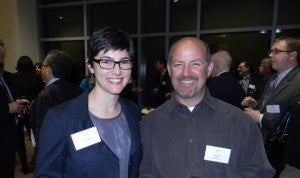http://www.youtube.com/watch?v=WEe1bVjORN4
On this Earth Day, take a moment to appreciate the vastness and intricacies of our world’s oceans. Allow yourself to be mesmerized by the swirling currents continuously circulating the globe. It is amazing that science can meticulously catalog natural systems and present them to those without the ability to see what our Earth looks like from space. What this stunning NASA visualization does not show, are the numerous challenges facing the oceans such as overfishing, ocean acidification, oil spill contamination and plastic waste. While these challenges are largely hidden beneath the waves, increasing awareness, education, scientific research and advocacy have illuminated them. These challenges impact not only the fish and other creatures that live in the ocean, but the billions of people worldwide who depend on clean, healthy oceans for food and eco-tourism.
Fortunately, a growing momentum to save our oceans is emanating from all corners of the world as people see the value and imminent need to preserve marine resources for future generations. The World Bank announced a Global Partnership for Oceans last February 2012, which brings together governments, international organizations, civil society groups and members of the private sector with the common goal of assembling knowledge and financial resources to solve the threats facing ocean health and productivity. This partnership represents a concrete collaboration between global stakeholders to restore the oceans to health, and we are proud to be a part of this effort. Read More
